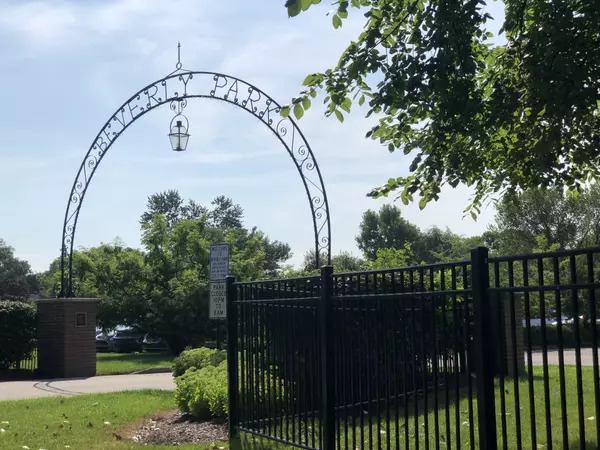Avoid the 5 Pitfalls of Moving Into an Assisted Living Community

Whether for yourself or for mom or dad, the decision to transition to an assisted living community is a significant one. Because this transition is often marked by a mix of anticipation and apprehension, we delay making the decision. We have some of the very best assisted living facilities in the Birmingham-Bloomfield area including All Seasons, Cedarbrook of Bloomfield Hills and American House to name a few. While these communities offer a wealth of benefits, it's essential to approach the process with careful consideration. Here are five potential pitfalls to be aware of when moving into an assisted living community:
1. Insufficient Research and Selection
Lack of Proper Research: Moving into an assisted living community without conducting thorough research can lead to disappointment. Failing to explore available options, amenities, and the community's culture might result in a mismatch between your expectations and the reality.
Ignoring Red Flags: Rushing through the selection process may cause you to overlook red flags such as poor reviews, inadequate staffing, or cleanliness issues. The staffing issue is critical, especially today. We are still seeing labor shortages at many assisted living facilities, even some of the top communities in Metro Detroit. Ignoring these warning signs can result in an living experience that you may regret.
How do you avoid this pitfall? The best way to avoid this pitfall is to plan ahead. We advise our clients to do the research ahead of time so if the time comes – and it may not – you will have selected an assisted living facility.
2. Financial Missteps
Underestimating Costs: Assisted living expenses can vary widely and include accommodation, meals, healthcare, and additional services. Underestimating these costs can lead to financial strain down the road.
Not Considering Future Needs: While a community may meet your current needs, it's crucial to think about potential future requirements. Moving again due to evolving healthcare needs can be emotionally and financially taxing.
This is one-two punch: underestimating the costs and not considering (or knowing) future expenses.
How do you avoid this pitfall? We advise our clients to budget for their future needs and add a reserve of 20% for future needs. Having this budget ahead of time empowers you to select the right assisted living community and avoid the pain of a second move in the future.
3. Lack of Independence and Autonomy
Loss of Freedom: Some residents might find the transition to an assisted living community challenging if they perceive it as a loss of independence. Balancing the desire for assistance with maintaining autonomy is a delicate endeavor.
How do you avoid this pitfall? To be clear, you may want to delay the transition to an assisted living facility as long as you can to preserve your freedom. That said, when the time comes we suggest prioritizing freedom and selecting a community where you can maintain your independence on your terms.
Also, adapting to a new routine and community living can be emotionally taxing. Know there is a transition period and making your new living arrangement feel like home will make this transition to assisted living satifying.
4. Communication Gaps
Miscommunication with Staff: If concerns or issues arise, not effectively communicating them to the management of the assisted living community can hinder your ability to address and resolve any issues with your new living environment. Inadequate communication with the assisted living community's staff regarding your preferences, medical needs, and daily routine can lead to frustration and suboptimal care, which is the last thing you want.
How to avoid this pitfall? Be clear in your communication. We suggest having a detailed written plan outlining your preferences. Your written plan should detail your weekday and weekend daily routines. Detail your medical requirements and concerns. List your expectations for the team at the assisted living community. Having a written document will help you avoid the pitfall of a communication gap.
5. Social Isolation
Feeling Isolated: The social opportunities are a key advantage of an assisted living community. Being surrounded by other residents and new friends can be energizing. While assisted living communities provide opportunities for social interaction, some residents might struggle to connect with peers or engage in activities. Integrating into the new community can be challenging. This sense of isolation can lead to unhappiness. Choosing not to participate in community activities or events can contribute to a lack of social integration and missed opportunities for enjoyment.
How to avoid this pitfall? Be purposeful with your schedule to participate in the social activities. We suggest scheduling out your first thirty days and participate in as many social activities you can. It will be a busy thirty days but this will you transition and make your new living arrangement enjoyable.
Moving into an assisted living community is a significant life transition that comes with its own set of challenges. By being vigilant about thoroughly researching options, understanding the financial commitments, balancing independence with assistance, fostering effective communication, and actively engaging in the community, you can avoid or mitigate these potential pitfalls. Remember that proactive planning, open communication, and a willingness to adapt will empower you to navigate this journey with confidence and ensure a fulfilling and enriching experience in your new home.
If you or are loved one is starting the journey to assisted living, email Jeff Higgins today at jeff@higginspartners.com for our assisted living guide - Assisted Living - What You Need To Know.
Categories
Recent Posts










GET MORE INFORMATION
Managing Partner | License ID: 6506046014
280 North Old Woodward Avenue, Suite 100, Birmingham, MI, 48009, United States
